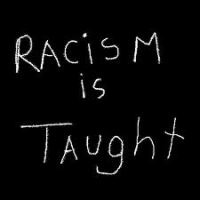“To err is human, to forgive divine” -Alexander Pope from An Essay on Criticism.
~*~
Most are familiar with that quote. It means: All people commit sins and make mistakes. God forgives them, and people are acting in a godlike (divine) way when they forgive.
There is a huge emphasis in American culture for people to go around forgiving each other. We see our television and film characters going through drama and then in pop-psychological ways they more often then not forgive each other as the music swells.
Well up until a month or so ago, I thought that was the thing to do as well. But I’m here today to share with you something I learned in this group therapy course I’m participating in. And when I say deep I mean take a visit to the Grand Canyon and we can discuss deepness.
I learned that you do not have to forgive everything.
If someone has done something, or done something to you that in your book is unforgivable, then you don’t jolly well have to forgive them.
What do have to do, is get a handle on the situation, understand it for what it is – ie get the REALITY of it buckled down, and deal with the real situation. And dealing may mean you have to walk away, or reduce interaction, or get help in deciding how to manage the situation. Or any other number of things.
But you don’t have to forgive.
It may sound like blasphemy, but remember the quote: when we forgive we are taking on godlike qualities. Yet we are mortal human beings, and well asking someone to go all divine for you, or someone asking you to do it… well, just, NO.
~*~
My learning this amazing piece of information came about in discussion with a woman who is going through a bitter custody battle over her grandchildren. She said something like “I can’t forgive so and so for putting his children through this”. Our instructor said “Well, you don’t have to forgive” and it was a record scratch moment while we all sat there frozen with our mouths open.
I guess I wasn’t the only one who was hearing that for the first time too. It takes awhile to wrap your head around it, but it does begin to make a lot of sense. This woman will have to deal with the realities of the situation. The courts and the decisions they make. She may get partial visitation, she may get full or none. She may have to deal with the parent in question who is not so good for the kids. She may have really big decisions to make.
But she does not have to forgive the instigator of this mess for embroiling the kids in a traumatic, messy situation.
~*~
On those TV shows, it always seems like the people won’t be able to move on and deal with the situation unless forgiveness is handed out.
Well. That isn’t true. Remember that.
Don’t be the one running around asking everyone to forgive you for stuff. And don’t be the one rendering forgiveness on stuff that you find unforgivable.
Sure, there are things you can forgive, and if they sit ok with you to forgive, go on ahead. But usually the stuff we are told by society and our culture to forgive or ask forgiveness for are These Huge Things: and that needs to stop.
Pray and get forgiveness from someone who is actually divine and part of their skillset is forgiving mortals. Stop expecting me to pinch hit for the Divine. Because I am human, and I can only take so much, and even if you do expect forgiveness, don’t come over here looking for it.
I had always, always balked at this very thing. If you’ve undergone any kind of therapy, the subject of forgiveness always comes up. You got Oprah and everybody talking forgive, forgive, forgive. You got that saint-like woman who survived Dr. Mengele – able to forgive him for what he did to her and her twin sister. So who am I to not be able or want to forgive?
Turns out I am ok, and I am awesome, and I don’t need to forgive.
I tell you, a huge weight dropped off my soul when I finally understood this. Really understood it.
I can now move forward and get down to the brass tacks, the reality of the situations I’m dealing with, understand them and finally be able to handle them and/or manage them.
Because, truth be told, for decades, I had been fake-forgiving. Because I had been told over and over again that was the thing I needed to do in order to move on towards a healthier life. And even though I was not feeling it, I gave lip service to it, because I wanted to do the right thing, to heal and to move on. However:
Some stuff you just can’t forgive.
And I think in the heart of my hearts I knew that. Now instead of holding onto the damage that fake-forgiving has been causing me, I can set that whole thing aside and deal with the reality and really be able to move on.
The freedom this has brought me is indescribable.
_______________________________________________

















Thank you for being brave enough to say this. I’ve never understood the pressure to forgive, and the assumption that you won’t be able to rest easy until you have done. Uh no, we can rest easy just fine. Like you say, understand and deal with the situation, but don’t fake-forgive or force yourself to reach a state which is apparently forgiveness. It makes my blood boil when people who’ve committed heinous crimes ask their victims for forgiveness. They do this solely for their own peace of mind, not for their victims and families.
“…We see our television and film characters going through drama and then in pop-psychological ways they more often then not forgive each other as the music swells…”
I enjoy (as usual) the way you craft your premise.
Question: Is this real forgiveness? If not, what is the the definition of real forgiveness, that which has its genesis in the Divine, and is channeled through the human? If we choose to operate in forgiveness, how do we know when we are successful?
I’ve known and felt this for a long time and I do find that some things are unforgivable, though then the issue is one of coping and not letting something unforgivable destroy you by something like bitterness. This can be done.
As for the Divine, I am one of those who does believe that Love is a very real force, yet sadly, it seems that as far as the human race goes, it seems everything is “allowed”.
Something to consider: Who owns the right to forgive (assuming there is an individual title to forgive per incident, like a title to a car), the person wronged, the people affected, or is their a community ownership in place here? I ask this because there is an ongoing disagreement between Christian and Jewish philosophies concerning the issue, and I’d like the Buddhist POV.
(This is an extremely interesting discussion, btw.)
Interesting, yes – I was letting y’all have at it. But since you asked me directly: I can’t say much about what Buddhism says about forgiveness, because there are so many different types of Buddhism, but there are two general principles that I think might cover most.
Cause & Effect and Compassion.
Cause & Effect in the simplest of terms means that for your actions, there is always an effect, consequences. The Buddhism that I practice also says that you have to take responsibility for the consequences of your own actions. Running around forgiving people for their actions, or asking forgiveness for yours is moot, or perhaps extra or unnecessary icing on an already decorated cake. Could be perhaps why the concept of forgiveness never sat well with me. If you remember, I’ve been a Buddhist since my mid-teens.
Buddhists are taught about the Compassion of the Buddha. In this sense, compassion means empathy and understanding that is usually inextricable from the concept of helping others. The compassion is for the human being, the individual, not their actions. Those actions and their consequences being in the realm of each individual to deal with. An example might be Sister Helen Prejean and her being the spiritual adviser to death row inmates – most remember her depiction by Susan Sarandon in that movie Dead Man Walking.
I was fascinated by her act of true bare bones compassion. It is interesting to note that in the film Sister Helen tells Poncelet that his redemption is possible only if he takes responsibility for what he did. It is also interesting to note that in the film, during his last words, he appeals to father of the boy he murdered for forgiveness.
He paid for his actions of rape and murder with his life. The movie showed that in the final minutes before going to his execution he finally owned up to what he’d done. But I’m with Celticlass when she said this: “It makes my blood boil when people who’ve committed heinous crimes ask their victims for forgiveness.”
If someone I’ve harmed in any way comes up to me and offers me forgiveness all on their own, well that is their choice to do so, because I certainly wouldn’t ever ask them to forgive me. My compassion for the suffering I caused another human being would lead me to apologize, offer to make amends, make things right, take responsibility for my actions, and other things along those lines – but I would never never never ask for anyone to forgive me.
How can you practise compassion, understanding, and empathy and choose not to forgive? Forgiving is literally in the meaning of understanding. I do agree that if I hurt someone I would apologize, but I wouldn’t ask them to forgive me, that does seem a little inappropriate. Sometimes ideas don’t sit well with us (like the idea of forgiveness) because there’s always some type of struggle we have for balance. The struggle to do right, because it’s sometimes easier to do wrong. Please don’t allow yourself to succomb to the notion that forgiveness isn’t necessary.
I’m not saying forgiveness isn’t necessary. I’m saying it isn’t MANDATORY. Each person has some things that to them, are simply unforgivable. What those things are, vary from person to person. What I was saying in my post, was that society and media/entertainment pushes the notion that we should go around forgiving for EVERYTHING.
I’m stating my opinion that: I think Not.
I can still remain compassionate towards a person who has done something to me that in my book is unforgivable. I can wish upon them great and wonderful things, and hope and pray for them, and have the desire for them to do better and to not go on to wound someone else in a similar fashion.
I will have to disagree with you that “forgiving is literally the meaning of understanding”. Say for example someone killed my son. That I could not forgive. But perhaps there were mitigating circumstances in that person’s life that would lead me to understand how they ended up a murderer. I can understand their life, who they are, and still not forgive them their actions.
I completely understand what you are saying now. It sounds like you have forgiven the person, but not the deed. I completely agree with that, I don’t believe you have to forgive the act that the person committed. But if you look up the literal meanings in the dictionary of these words compassion, understanding you will see forgiving, it is in Webster’s anyway. I too have had unforgiveable things happen to me, but the only way I was able to find compassion and be able to wish that person well in their life, was through forgiveness. I still don’t appreciate what happened to me. But the ability to have compassion for someone who has done you wrong, is a result of forgiving them. I really appreciate your dialogue and you sharing your experience, it definitely made me delve deeper into what I believe in, and isn’t that what sharing is all about….helping each other grow. I really enjoy reading your blog.
Pingback: You Don't Have To Forgive | Oppression Monitor
Well, Ms. ABW, I must say this: As an adherent to the Christian faith, if you really live according to your last paragraph, I would to God that more of the ppl who claim to be Christians would be able to say “…My compassion for the suffering I caused another human being would lead me to apologize, offer to make amends, make things right, take responsibility for my actions, and other things along those lines …”
I used to say that converted Muslims make the best Christians, but you’re slowly changing my mind about that.
Slowly.
Old mules are the hardest to turn.
I feel that some people don’t deserve forgiveness because; most of them do not know what they did wrong.so what is the point, forgiveness to me is giving a people a pass to think it was okay to hurt me or cause trauma.the fact that most people who has caused you pain don’t even give a damn, i don’t want a apology, years later.I moved on from the situation but I remember because memory is served to protect myself.
We’re not gods, but God created us in His image, so we can have god lke qualities allowing the divinity of forgiveness to be accessible to us. Unforgiveness affects you subconciously. To forgive is to stop being angry or bitter or resentful towards someone. Harboring anger and bitterness affects you whether you realize it or not. You don’t have to continue a relationship with someone to forgive them, just release yourself from the anger and bitterness. “Resentment is like drinking poison and then hoping it will kill your enemies.” -Nelson Mandela
Love and Light to you!
I also have to disagree with “to forgive is to stop being angry or bitter or resentful towards someone.” There are very few instances in my life that I have simply decided to not forgive. But they are there. I did my mourning, my therapy, my Going Through It and have made it on to the other side. I don’t have anger towards those people. I’m not bitter about what happened. I’ve simply Moved On.
Resentment is an emotion that I have for decades decided that I can ill afford to carry around. I harbor no resentment towards those people. I don’t focus energy on those who have wounded me that deeply. I focus it on those who love, care and support me. It IS possible to not forgive and to also not have all of those emotions you listed going on. At least it is with me.
I appreciate you worrying that I have that stuff going on, but I don’t. This post was about me letting go the last vestiges of pressure put on me and many others, about if you don’t forgive on whatever it is that to you is unforgivable – then that’s a bad thing.
As stated, this concept – that I’d always had, but not articulated – was stated by a certified behavioral health professional. It isn’t a bad thing. And it’s perfectly ok to have boundaries, that when crossed, you don’t have to forgive.
Those concepts, backed by professionals in the field, helped me free myself even further, and I wanted to share that with others, in case they were having a hard time/being given a hard time over not forgiving the unforgivable.
Thank you for the Love and Light! That is Always wonderful to receive :)
Blessings to You and Yours!
Thank you! I am relieved to know that you are free. I understand what you are saying, now.
People think because you don’t forgive you’re bitter that’s not true I’m sick of this lie. If you want forgiveness from me you must ask for it and you must be genuinely sorry.
I totally agree. There should not be emphasis on forgiveness. Its a wonderful high and mighty notion, like get in line for your halo. I truly believe in forgiveness, but I believe its a natural outcome of working through your shit. In therapy, I’d always be having some A-ha moment and thinking, “So THIS is why I’m so angry! HA!” and then, “No, THIS is why I’m so angry!” I see my life and my emotions and problems as a ball of yarn with many strands. I start with a strand and start untangling and its OMG fascinating and painful. Its very multilayered and one thread leads to another and over and under…What was my point? Oh yeah, as I have worked on figuring out my emotions, I have a better understanding of myself. With the help of a therapist recently, I was ready to be honest with myself about some important issues and I feel a lot less angry. To me that feels good. I was going to say that maybe that is forgiveness. But to hell with that. Forgiveness is a fluff word to me now. It has been overused and abused. Its hard to be truly honest when you’re trying so hard to be “FORGIVING”. Its just a word that’s easy to say. (Well, maybe not that easy.) I say, Oh I forgave her for that. Then a little while later…Oops, I guess I haven’t forgiven her. and on and on. Because I keep discovering things, uncovering things. Maybe I find out that the person I was angry with isn’t really the person who did me the most harm. Anyway, after a while the word becomes meaningless. Oh, this therapy guy I’m seeing believes in the “forgiving” bit. I told him my thoughts about it. Before I leave I hope to convince him to NOT bring up forgiveness when he’s working with someone.
On asking for forgiveness (of a person): WHAT??? That is ludicrous. I have never asked someone for forgiveness. I have imagined myself on my knees, hugging their legs, crying, pleading. In my mind! But I think asking for forgiveness is inappropriate. If I did a bad deed, I have to sit with that. I will admit my mistake, I say I’m sorry. Then I need to let that person do whatever they need to do. Hoping that they can still like me and be friends with me or whatever the situation is. I have to try to forgive myself. Which can be difficult. Because I seem to have been born guilty.
THANK YOU. I hate this pressure to forgive, because it lays another burden on the victim. They’re “supposed” to feel something they may not be able to, and are often told THEY are bad people because they can’t/won’t forgive.
Abusers just LOVE “forgiveness.” Lots of people think forgiveness means you “put it behind you, and never bring it up again.” If you do, that means you didn’t really forgive. This gives the abuser a pass, and embarrassed friends and relatives are spared discomfort and embarrassment. That doesn’t heal a victim – it just hushes them up so everyone else can feel better.
Victims should be allowed to heal in the manner best for THEM. If they feel that means forgiveness, fine. This “forgiveness” is being touted as a cure-all for everyone. It’s NOT.
Excellent points. I hadn’t thought about it as being a continuation of abuse: it certainly is! It’s been amazing to me how the narrative of forgiveness is so prevalent in our society, media etc. Watch a TV show – any show really – and there will ALWAYS be a moment (lots of moments really) where one character forgives another. Or this character begs forgiveness from someone or “hopes they’ll see to forgiving me” type of thing.
Once you’ve seen the light on forgiveness, seeing that playing out over and over again both in real life as well as fiction can be physically nauseating. Ugh!
I’m so glad you stopped by to share your thoughts – Thank You! You’re exactly right: The hushing up thing is for everyone ELSE to feel good, and the victim’s feelings about it all be damned.
I agree, I said I forgave people but I didn’t forgive them, because it made me upset, Instead of being angry I moved on and ignore the people who hurt me, People go on as if anything has happened,so why forgive them, I’m sleeping well at night and the resentment has went away, as time goes on I will eventually forget about them. People don’t care, Why should I.
Thank you so much for this. I really needed to see this, and to me it feels so much more affirming, helpful, and healing than the thousands of pieces out there expounding the flawed concept of “how to forgive the unforgivable.” Kudos to you.
You are SO very welcome! And it’s funny, I almost didn’t make it to my therapy group that day. I’m so glad I did, and that I’m able to pass along this much needed info to folks out there struggling with all this “you must be able to forgive” blah blah nonsense, and who are wondering WHY it doesn’t ever sit right.
Blessings to you and yours.